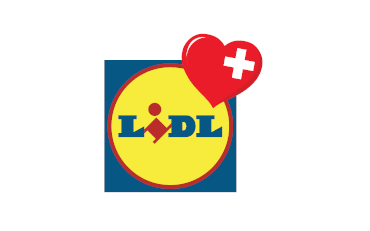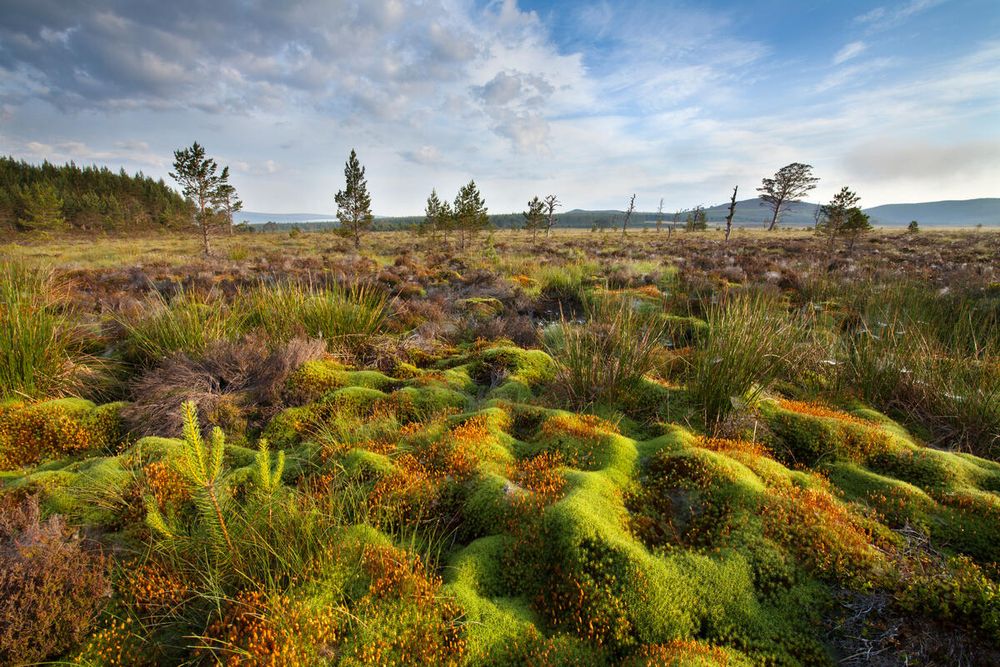Partnership with Lidl Switzerland 2022
Lidl Switzerland has been steadily strengthening its sustainability efforts in recent years – with significant success. At the beginning of 2017, Lidl Switzerland entered into a partnership with WWF Switzerland, committing to comprehensive, specific, and ambitious sustainability goals. The focus is on the further conversion of the product range to more environmentally friendly products and the reduction of the company’s emissions.


CLIMATE AND ENERGY
Lidl Switzerland more than halved its relative operational greenhouse gas emissions between 2013 and 2019, thereby exceeding the reduction goal agreed with WWF. Even more ambitious goals were set from 2020: Lidl Switzerland has committed itself to the Science-Based Targets Initiative (SBTi) and extended its flight ban to include other products.
Science Based Targets
As part of the Science-Based Targets Initiative (SBTi) co-founded by WWF, Lidl Switzerland has committed itself to reducing its emissions. Lidl Switzerland joined the initiative in 2019 and has expanded its existing operational CO2 footprint to include other indirect emissions. Indirect emissions include those of traded products.
Air-freighted products
To reduce greenhouse gas emissions, Lidl Switzerland has implemented a flight ban for the entire range of fresh fruit and vegetables since it entered the market in 2009. As part of the partnership with WWF Switzerland, Lidl Switzerland has expanded this goal to include the product categories of fresh herbs, fresh meat, and fresh fish.
This is measured as the share of products flown in of the overall range of fresh vegetables and fruits, fresh meat and fish, and fresh herbs. The reporting period is March 2022 to February 2023.
In the 2022 financial year, Lidl Switzerland did not air freight in any fresh fruit, vegetables, herbs, fish, or meat and thereby continues to achieve their goal.
Energy-efficient light bulbs
Lidl Switzerland has set itself the goal of only selling energy-efficient light bulbs from the end of 2018. Lidl Switzerland managed to achieve this goal one year earlier. This is measured as the number of LED bulbs relative to the total number of bulbs as a percentage. The reporting period runs from March 2022 to February 2023.
In the 2022 financial year, 98.89 % of the lighting fixtures were energy-efficient.
Note: In FY 2022, 3 items with non-LED bulbs were sold in the promotional assortment.

FISH AND SEAFOOD
As a smart discounter, Lidl Switzerland pursues an ambitious 100% goal for recommendable fish and seafood, relying especially on renowned labels.
Standard listing: Fish and seafood products with sustainability label
Lidl Switzerland’s goal is to sell only fish and seafood products with jointly defined sustainability labels in their standard listing. This is measured as the number of fish and seafood products with sustainability labels relative to the total number of fish and seafood products, shown as a percentage. Accepted standards are MSC (Marine Stewardship Council), ASC (Aquaculture Stewardship Council), and organic. The scope is comprised of the standard listing of the overall range. The reporting period runs from March 2022 to February 2023.
In fiscal year 2022, Lidl Switzerland had 99.41% of its seafood certified MSC, ASC or organic in the standard listing.
Comment: In the fiscal year 2022, there was a residual sale of an item with non-certified fish ingredient. The item has already been discontinued.
In the fiscal year 2022, there was a residual sale of an item with non-certified fish ingredient. The item has already been discontinued.
Lidl Switzerland aims to ensure that 100 % of the fish and seafood products in its promotional range come from recommended or acceptable sources according to WWF. The number of fish and seafood products from recommended or acceptable sources is measured against the total number of fish and seafood products. The figures are given as a percentage.
The scope is the promotional assortment of the total assortment. Reporting period is March 2022 to February 2023.
In 2022, 94.12% of fish and seafood products in the promotional range were from recommended or acceptable sources.
Note: In FY 2022, there were 12 items on sale with WWF Score 4 or 5. Alternatives are under consideration.

PALM OIL
Lidl Switzerland has decided to only use sustainable, RSPO-certified (Roundtable on Sustainable Palm Oil) palm oil for its own-brand products.
Share of physically sustainable palm oil in own-brand food products
Lidl Switzerland aims to only use physically sustainable palm oil in its own-brand products in the food segment as of the end of the 2018 financial year. This is measured as the share of food products containing physically sustainable palm oil relative to the total number of food products containing palm oil, shown as a percentage. The accepted standards are RSPO IP, RSPO Segregated, organic (Suisse, Switzerland, EU), POIG. The reporting period runs from March 2022 to February 2023.
In 2022, 98.73 % of the palm oil in the own-brand food range was physically sustainable.
Note: 8 items with RSPO Mass Balance (instead of RSPO Segregated) certified palm oil were sold in FY.
Share of certified palm oil in near-food own-brand products.
Lidl Switzerland aims to only use sustainable palm oil in its own-brand near-food products as of the end of the 2018 financial year. This is measured as the share of near-food products containing sustainable palm oil relative to the total number of near-food products containing palm oil, shown as a percentage. The accepted standards are RSPO IP, RSPO Segregated, RSPO Mass Balance, and Bio Suisse. The reporting period runs from March 2022 to February 2023.
In 2022, Lidl Switzerland continued to meet their goal of 100% certified palm oil in own-brand near-food products.

WOOD AND PAPER
Lidl Switzerland aims to only use 100% sustainable, certified cellulose for its standard range of own-brand paper products and packaging.
Products and packaging made from sustainable cellulose
Lidl Switzerland has set the goal to obtain 90% of all cellulose in products and packaging from sustainable sources. This includes cellulose in the standard range of own-brand products and packaging, outer packaging, and labels (primary, secondary and tertiary packaging). The accepted standards are FSC, FSC mix, recycling, and Blue Angel. The reporting period is March 2022 to February 2023.
Full monitoring for primary, secondary, and tertiary packaging could not be ensured during the reporting period due to the complex company and supplier structure of Lidl Switzerland. Therefore, the degree of goal achievement cannot be shown for packaging. The graph below only shows the goal achievement for products with cellulose content. 96.23% of all products containing cellulose were from sustainable sources in 2022.

OTHER RAW MATERIALS
Lidl Switzerland has also set itself the goal of ensuring that cocoa, coffee, and tea come from certified sustainable sources.
Share of own-brand cocoa products with sustainability standard
Lidl Switzerland has set the goal that by the end of 2017, all cocoa in own-brand products should come from certified, sustainable sources. This is measured as the number of relevant cocoa products with a sustainability label relative to the total number of relevant cocoa products, shown as a percentage. A "relevant cocoa share" is defined as any volume share exceeding 1% of the product. The following standards are accepted: Fairtrade, organic (Suisse, Schweiz, or EU), and Rainforest Alliance. The reporting period runs from March 2022 to February 2023.
In the 2022 financial year, Lidl Switzerland reached the goal of 99.94%
Comment: In FY 2022, 3 promotional items with small quantities of non-certified cocoa were temporarily on sale. The switch to certified cocoa is taking place.
Share of coffee products with a sustainability standard in own-brand products
Lidl Switzerland has set the goal that from 2019 on, all own-brand coffee should come from certified, sustainable sources. . This is measured as the share of relevant coffee products with a sustainability label relative to the total number of relevant coffee products, shown as a percentage. A "relevant coffee share" is defined as any volume share exceeding 1% of the product. The following standards are accepted: Fairtrade, organic (Suisse, Schweiz, or EU), and Rainforest Alliance. The reporting period runs from March 2022 to February 2023.
In 2021, Lidl Switzerland has met the target of 100% certified coffee again.
Share of tea products with a sustainability standard in own-brand products
Lidl Switzerland has set the goal that by the end of 2018, all tea from non-EU countries (black, green, and rooibos tea) in own-brand products should come from certified, sustainable sources. This is measured as the number of relevant tea products with a sustainability label relative to the total number of relevant tea products, shown as a percentage. A "relevant tea share" is defined as any volume share exceeding 1% of the product. The following standards are accepted: Fairtrade, organic (Suisse, Schweiz, or EU), and Rainforest Alliance. The reporting period runs from March 2022 to February 2023.
In 2022, Lidl Switzerland met the 100% goal again.
Share of relevant tropical fruits with sustainability standard
Lidl Switzerland has set the goal of only offering 100% certified relevant fresh, overseas tropical fruits (bananas, mangos, and pineapples) by the end of 2019. The number of relevant tropical fruits certified is measured against the total number of relevant tropical fruits.Fairtrade, organic (Suisse, Switzerland, EU), and Rainforest Alliance are accepted standards. The reporting period runs from March 2022 to February 2023.
Lidl Switzerland reached their goal early in late 2017. In the 2022 financial year, the certified proportion of fresh tropical fruits was 75%.
Note: For selected origins of mango, Lidl 2022 worked risk-based with the GlobalG.A.P. SPRING/GRASP and SCS standards.
WWF is currently clarifying whether these standards are accepted as sufficient.
Share of peat in soils
Lidl Switzerland has set the goal of no longer selling peat-containing soil as of the end of 2019. The share of peat in all packaged soil sold is measured.
Lidl Switzerland was already able to achieve the final target of 0% peat-containing soil in 2018.
No peat-containing soil was sold in the 2022 financial year, and the target was thus met again.


